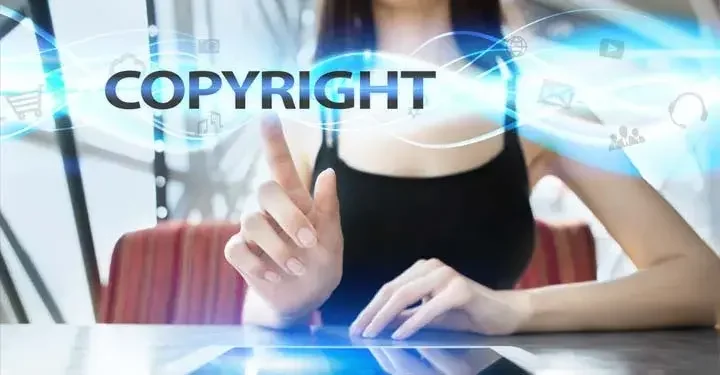Copyright is a form of legal protection offered to the authors of certain kinds of intellectual property. People commonly think of literary works as having copyright protection, but so do creations such as movies, plays, and music. Copyright protects a person or company's exclusive ownership of a work, meaning no one else can copy, distribute, make derivative works from, display, or publicly perform what the copyright owner has created for as long as the copyright is in effect.

Works that can be copyrighted
Copyright laws apply to any work of authorship that is "fixed," which generally means it is somehow recorded, written, or filmed so there is a permanence to it. You may own the copyright to any kind of original expression that you've created that falls within the following areas:
- Literary work
- Musical work
- Dramatic work
- Artistic work
- Architectural work
Works that are not protected by copyright include:
- Ideas
- Systems, such as a system for managing inventory
- Domain names
- A listing of recipe ingredients
- Names, such as the name of a company
Copyright creation
Copyright protections exist through U.S. law, specifically the Copyright Act of 1976, which gives authors ownership of the work they create. Copyright ownership automatically begins at the very moment a work is created and generally provides protection until expiration 70 years after the death of its author.
You do not need to publish your work and you do not need to actually register the copyright to hold ownership. However, registering is necessary to enforce your rights through litigation if someone infringes on your copyright.
The fair use exception
The use of copyrighted work without permission is called infringement. However, there are situations when use without permission may be allowed. Fair use, a legal doctrine that allows for unlicensed use, provides a framework of four factors that have to be weighed when the question is considered by a court:
- The reason for and type of use, such as whether it is for an educational versus a commercial purpose. Nonprofit educational uses are more likely to be considered fair use.
- The nature of the copyrighted work. Works that are based in fact are more likely to be allowed under fair use, versus those that are more creative and imaginative.
- How much of the work is being used in proportion to the work as a whole and how substantial the usage is. Two lines of a haiku poem might not be fair use whereas two lines of a 400-page novel is more likely to be.
- How the usage affects the value of or the market for the work. If unlicensed use of the work leads to the owner losing money, it will less likely be considered fair use.
Courts look at all of these factors together when deciding if something is fair use. Some common examples of fair use include:
- A reporter quoting a politician's speech in a news report
- A researcher quoting a medical study when analyzing whether it is accurate in an academic journal
- A teacher printing out an online poem for use in class
- A comedy troupe doing a parody of the "I'm the king of the world" scene from the movie Titanic
- A music critic quoting a few lines from a song in an album review
Note that while the United States has a fair use exception, other countries use a similar concept called fair dealing.
Orphan works
An orphan work is one whose owner cannot be determined or located. For example, if someone wrote a poem on a subway wall but didn't sign it, there is no way to know who owns it to get permission to use it. If a company decided to use the poem in an ad campaign, the author could then sue the business for copyright infringement, even though there was no way to identify and find the author.
Orphan works are protected by the Copyright Act of 1976, but the U.S. Copyright Office released a report in 2015, stating that new laws are needed about this matter, primarily to reduce the liability of people using orphan works if the owners come forward.
Copyright provides important protection of ownership rights of creative works. Understanding the works copyright applies to and the limitations of copyright can help you understand your rights and how to protect ownership of your work.

